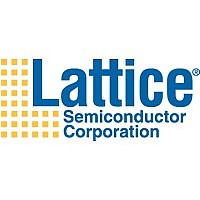LFXP2-8E-5TN144I Lattice, LFXP2-8E-5TN144I Datasheet - Page 322

LFXP2-8E-5TN144I
Manufacturer Part Number
LFXP2-8E-5TN144I
Description
FPGA - Field Programmable Gate Array 8K LUTs 100 I/O Inst on DSP 1.2V -5 Spd
Manufacturer
Lattice
Datasheet
1.LFXP2-8E-5FTN256I.pdf
(341 pages)
Specifications of LFXP2-8E-5TN144I
Number Of Macrocells
8000
Number Of Programmable I/os
100
Data Ram Size
226304
Supply Voltage (max)
1.26 V
Maximum Operating Temperature
+ 100 C
Minimum Operating Temperature
- 40 C
Mounting Style
SMD/SMT
Supply Voltage (min)
1.14 V
Package / Case
TQFP-144
Number Of Logic Elements/cells
*
Number Of Labs/clbs
*
Total Ram Bits
226304
Number Of I /o
100
Number Of Gates
-
Voltage - Supply
1.14 V ~ 1.26 V
Mounting Type
*
Operating Temperature
-40°C ~ 100°C
Lead Free Status / RoHS Status
Lead free / RoHS Compliant
Available stocks
Company
Part Number
Manufacturer
Quantity
Price
Company:
Part Number:
LFXP2-8E-5TN144I
Manufacturer:
Lattice Semiconductor Corporation
Quantity:
10 000
- Current page: 322 of 341
- Download datasheet (10Mb)
Lattice Semiconductor
LatticeXP2 Dual Boot Feature
Dual Boot
The device has two patterns, namely a Primary pattern and a Golden pattern, to choose to load.
Refresh
The action loads the pattern from a non-volatile source to configure the FPGA device.
Bitstream Data File (.BIT File)
The configuration data file, for a single FPGA device, in the format that can be loaded directly into the FPGA device
to configure the SRAM cells. The file is expressed in binary hex format. The file is not printable.
JEDEC File (.JED File)
The programming data file as defined by JEDEC 42.1C standard. The programming file is expressed in the ASCII 1
and 0 format. The file is printable. Third party programmers use it to support large volume production programming.
TransFR
The feature allows users to precisely control the user IO pins (high, low, or tri-state) while the embedded Flash is
massively parallel loaded into the SRAM fuses.
Security
Standard security is the feature that disables the read back operation from the embedded Flash and SRAM blocks.
Advanced security refers to the features providing encryption support and various Keys and Locks for protecting
the Embedded Flash block.
SED CRC
Soft Error Detection (SED) by calculating the CRC value of the value of the SRAM fuses. Lattice implements the
feature by using a 32-bit polynomial.
One Shot SED
After each boot from the embedded Flash, this feature enables the SED CRC feature automatically and immedi-
ately checking the integrity of the embedded Flash content.
Background Mode (User Mode)
The FPGA device shall remain fully operational as governed by the fuse pattern residing in the SRAM fuse module
of the FPGA device at the time while programming activities being carried out on the FPGA device or the peripheral
device (SPI Flash device) attached to it. This mode is the most critical attributes of the live field upgrade feature
that can be found only on Lattice’s FPGA devices.
Direct Mode (IEEE 1532 Access Modal State)
The FPGA device shall be removed from the governing of the fuse pattern residing in the SRAM fuse module, or so
to say, put to sleep while programming activities being carried out on the FPGA device or on the peripheral device
(SPI Flash device) attached to it. The IOs are either tri-stated or held statically while in this mode. Lack of a better
term, Lattice uses it to contrast against the background mode. All PLD devices support this mode.
Purpose
It has been the ultimate goal for the In-System Programming revolution championed by Lattice since 1990 to pro-
vide a reliable and continuous live field upgradable system. The TransFR feature designed into Lattice devices
since 2000 brings Lattice closer to the ultimate goal. With the introduction of the dual boot feature and the
advanced security feature in 2007, the ultimate goal is achieved.
17-4
Related parts for LFXP2-8E-5TN144I
Image
Part Number
Description
Manufacturer
Datasheet
Request
R

Part Number:
Description:
FPGA - Field Programmable Gate Array 8K LUTs 100I/O Inst- on DSP 1.2V -5 Spd
Manufacturer:
Lattice
Datasheet:

Part Number:
Description:
FPGA - Field Programmable Gate Array 8K LUTs 201 I/O Inst on DSP 1.2V -5 Spd
Manufacturer:
Lattice
Datasheet:

Part Number:
Description:
FPGA - Field Programmable Gate Array 8K LUTs 201I/O Inst- on DSP 1.2V -5 Spd
Manufacturer:
Lattice
Datasheet:

Part Number:
Description:
IC, LATTICEXP2 FPGA, 435MHZ, QFP-208
Manufacturer:
LATTICE SEMICONDUCTOR
Datasheet:

Part Number:
Description:
FPGA - Field Programmable Gate Array 8K LUTs 86I/O Inst- on DSP 1.2V -5 Spd
Manufacturer:
Lattice

Part Number:
Description:
FPGA - Field Programmable Gate Array 8K LUTs 201I/O Inst- on DSP 1.2V -7 Spd
Manufacturer:
Lattice
Datasheet:
Part Number:
Description:
FPGA LatticeXP2 Family 8000 Cells Flash Technology 1.2V 144-Pin TQFP
Manufacturer:
LATTICE SEMICONDUCTOR
Datasheet:

Part Number:
Description:
IC DSP 8KLUTS 146I/O 208PQFP
Manufacturer:
Lattice
Datasheet:

Part Number:
Description:
IC DSP 8KLUTS 100I/O 144TQFP
Manufacturer:
Lattice
Datasheet:

Part Number:
Description:
IC DSP 8KLUTS 86I/O 132CSBGA
Manufacturer:
Lattice
Datasheet:

Part Number:
Description:
IC DSP 8KLUTS 86I/O 132CSBGA
Manufacturer:
Lattice
Datasheet:

Part Number:
Description:
IC DSP 8KLUTS 146I/O 208PQFP
Manufacturer:
Lattice
Datasheet:

Part Number:
Description:
IC DSP 8KLUTS 201I/O 256FTBGA
Manufacturer:
Lattice
Datasheet:

Part Number:
Description:
IC FPGA 8KLUTS 86I/O 132-BGA
Manufacturer:
Lattice
Datasheet:

Part Number:
Description:
IC FPGA 8KLUTS 86I/O 132-BGA
Manufacturer:
Lattice
Datasheet:











